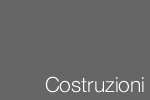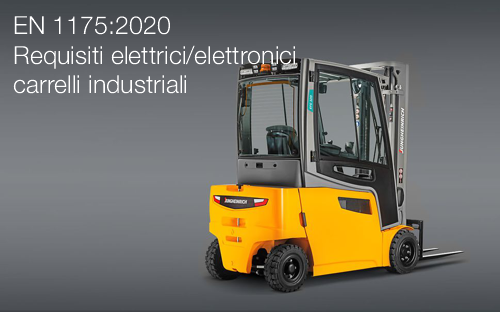EN 1175:2020 | Requisiti elettrici/elettronici carrelli industriali
UNI EN 1175:2020 Sicurezza dei carrelli industriali - Requisiti elettrici/elettronici
Recepisce: EN 1175:2020
Data entrata in vigore: 27 agosto 2020
La norma specifica i requisiti elettrici per la progettazione e la costruzione degli impianti elettrici dei carrelli elevatori industriali semoventi compresi nello scopo della UNI ISO 5053-1, ad eccezione dei carrelli fuoristrada a braccio telescopico come descritti nei punti 3.21 e 3.22 della UNI ISO 5053-1:2016, dei carrelli elevatori a portale come descritti nei punti 3.18 e 3.19 della UNI ISO 5053-1:2016 e ad eccezione di specifiche funzioni, parti e sistemi impiegati per il funzionamento automatico dei carrelli senza guidatore come descritti nel punto 3.32 della UNI ISO 5053-1:2016. Per tali carrelli industriali questo documento fornisce requisiti elettrici ed elettronici e requisiti per le parti dei sistemi di comando legate alla sicurezza, che devono essere utilizzati congiuntamente ai requisiti delle parti pertinenti della UNI EN ISO 3691 e della UNI EN 16307.
...
In allegato Preview EN 1175:2020 riservato Abbonati
This document is of relevance for the following stakeholder groups representing the market players with regard to machinery safety:
- machine manufacturers (small, medium and large enterprises);
- health and safety bodies (regulators, accident prevention organizations, market surveillance etc.).
Others can be affected by the level of machinery safety achieved with the means of the document by the above-mentioned stakeholder groups:
- machine users/employers (small, medium and large enterprises);
- machine users/employees (e.g. trade unions, organizations for people with special needs);
- service providers, e.g. for maintenance (small, medium and large enterprises).
The above-mentioned stakeholder groups have been given the possibility to participate at the drafting process of this document.
The machinery concerned and the extent to which hazards, hazardous situations or hazardous events are covered are indicated in the Scope of this document.
When requirements of this type-C standard are different from those which are stated in type-A or type-B standards, the requirements of this type-C standard take precedence over the requirements of the other standards for machines that have been designed and built according to the requirements of this type-C standard.
Fonte: UNI/EVS
Collegati:




















